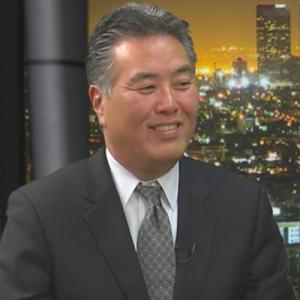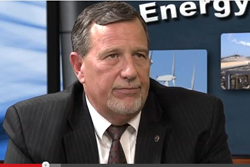Support for Jobs, Training and Project Labor Agreements
Congressman Mark Takano, recently spoke with Energy Independence Magazine about PLAs, job training and the state of education in the Inland Empire.
In 2010, as a Riverside Community College trustee, Mark Takano voted to use a project labor agreement (PLA) on a $350 million bond measure approved to renovate Riverside County schools. The five-year agreement required contractors to pay workers union-level wages and benefits. It also set a local hiring goal of 50 percent and required that apprenticeship programs are available on the job site. Workers applying for jobs from Riverside County received first priority, followed by applicants from San Bernardino County and the surrounding area.
Elected to Congress in 2012, Mark Takano, now in his second term, represents the 41st Assembly District of Southern California. The project labor agreement template, Takano says, is a great way to insure, among other things, compliance of prevailing wage on public projects. Prevailing wage is set by the Department of Industrial Relations and there is a growing problem of contractor fraud plaguing public works projects. He says it “levels the playing field.” Takano added, “It does not give an unfair advantage to unions.” He says of the RCC project that at least 50 percent of the contracts were awarded to non-union contractors.
Project labor agreements are not without political controversy, so much so that some California politicians have tried to legislate a ban on the option to use PLAs. As a result, on Oct. 2, 2011, Governor Jerry Brown signed SB 922 into law saying, “I am signing Senate Bill 922 to prohibit bans on project labor agreements.” The new law does not mandate the use of PLAs, but rather keeps the option available to California communities.
Congressman Takano strongly supports the use of PLAs, making the point, “It’s the only contract mechanism that allows a local entity the ability to require that a certain percentage of the workers on a project are from the local community.” He maintains that with PLAs in place, local tax revenues are kept inside the community supporting not only workers, but local merchants and the public sector. Takano added that PLAs aid in preventing ways that fraudulent contractors get around paying workers prevailing wages and promised benefits. There’s no incentive to take advantage of workers, he says, because everyone has to “play by the rules.” “That’s what these agreements are about,” Takano explained. “Everyone that puts in a bid doesn’t try to undercut other bidders by knowing that they have a way to cheat.”
Overall, Congressman Takano, and community leaders of the same mind, like California Assembly Member Jose Medina, believes that PLAs add to the fabric of a vital community where workers live and spend their earnings for local goods and services. “We have a tremendous challenge nationally with income inequality,” Takano says. “It’s important for the community to understand the ways in which we help working people get a fair shot.”
Speaking about education in Southern California, Takano is in favor of public assistance for technical and career training, supporting alliances between the education community and the private sector. “There’s a lot of training opportunities that we need to provide to people that are affordable, that are high quality, and that lead to jobs.” He says courses like the apprenticeship program offered by the International Brotherhood of Electrical Workers (IBEW) and administered by community colleges are extremely valuable to the community, in part, because they are funded by the private sector and produce highly skilled workers. Takano talked about “stackable” education where skills go hand in hand with instruction, and where a student has more than one way to complete their training and earn a degree. He emphasized, “There is a tremendous need to train the people to repair the machines that make machines.”
David Shankle
Labor Management Cooperation Committee
(909) 792-0387
email us here
Legal Disclaimer:
EIN Presswire provides this news content "as is" without warranty of any kind. We do not accept any responsibility or liability for the accuracy, content, images, videos, licenses, completeness, legality, or reliability of the information contained in this article. If you have any complaints or copyright issues related to this article, kindly contact the author above.


